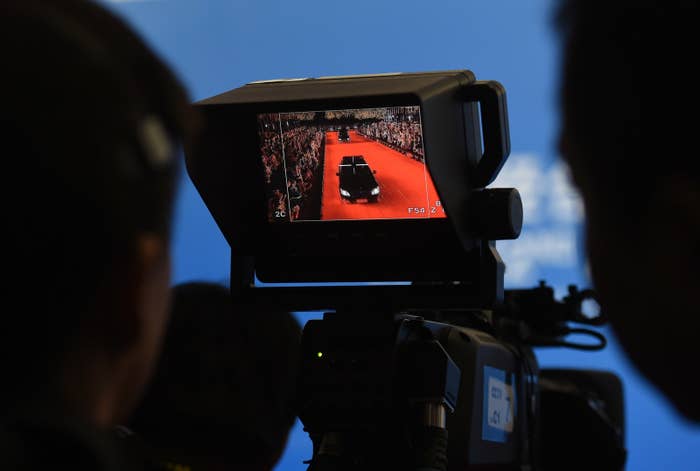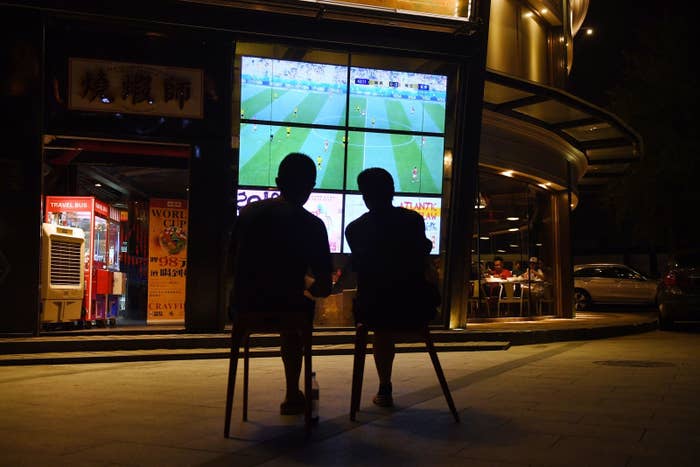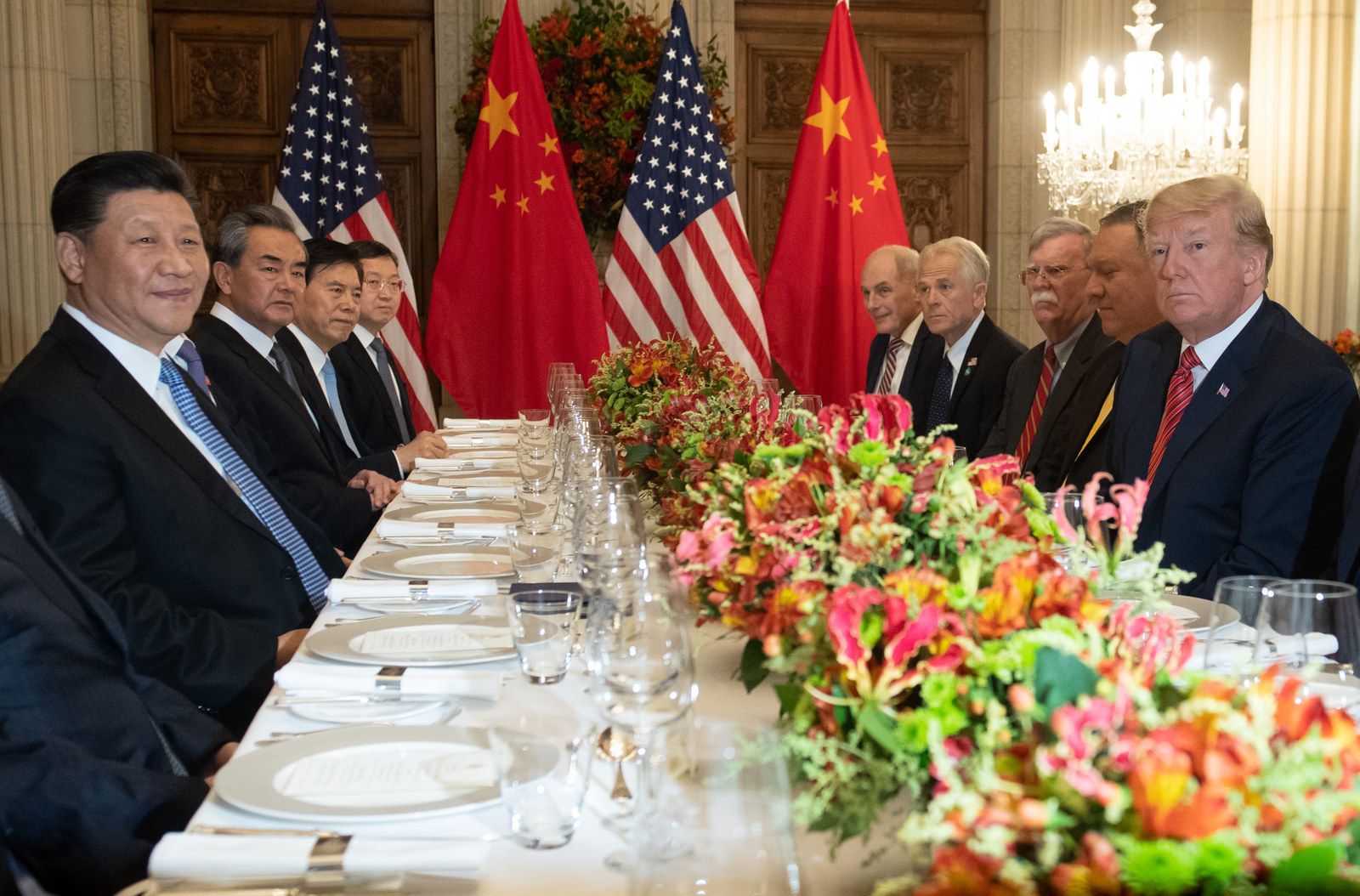
LONDON — The US arm of China's English-language state TV broadcaster has registered as a foreign agent under the Foreign Agent Registration Act.
In an internal staff memo leaked to BuzzFeed News on Tuesday, Jing Ma, the director-general of CGTN [China Global Television Network] America, told journalists the network had filed "in the spirit of co-operation."
CGTN filed the registration on Feb. 1, the day after high-level trade talks concluded in Washington. China and the US remain locked in a trade dispute, despite a 90-day truce to not raise tariffs any higher, which expires in March. CGTN is funded by CCTV, the primary state TV broadcaster in China.
"Although we do not believe registration by CGTN America is required as a matter of law, in the spirit of cooperation, CGTN America has decided to register under FARA on behalf of CCTV," Ma's memo said.
"I would like to emphasize that CGTN America’s registration does not make any of our reporters or other news professionals 'agents,' and I do not expect registration to interfere with our commitment and ability to maintain the same high journalistic standards we have set for ourselves and followed in our coverage and reporting of the news."

There's been pressure building on state-run media to register under FARA — the 1930s-era law aimed at curbing German propaganda during WWII — with RT, formerly known as Russia Today, filing as an agent of the Russian government in 2017.
The state-run, English-language newspaper China Daily has been registered under FARA since 1983. Xinhua News, another Chinese state media outlet, has not filed for registration.
Last year, the Department of Justice reportedly ordered two Chinese state-run media organizations CGTN and Xinhua to register after Sens. Marco Rubio and Patrick Leahy called for action from then–attorney general Jeff Sessions.
One journalist told BuzzFeed News that the memo angered the Washington-based staff of CGTN American: "There was some very upset people that employees weren't given a heads-up before the paperwork was filed and the registration went active."
"Lots are also mad about the line in the memo about how the registration was voluntary 'in the spirit of cooperation.'"
"The feeling is, 'Oh, so you didn't actually fight for us or even tell us?'"
A CGTN source said, "It's already hard describing who we work for. ... This makes it even more complicated and uncomfortable when talking to anyone on the outside."

The registration that CGTN filed on Feb. 1 largely amounted to a defense of the network, noting that while it is state-owned, it disagreed with the Department of Justice’s characterization that it’s an agent of the Chinese government.
“CGTN America enjoys editorial independence from any State direction or control,” said the filing.
It added that the network “performs the same news gathering and reporting activities endemic to professional journalism and performed by the Washington news bureaus maintained by other news organizations.”
Maria Repnikova, assistant professor in global communication at Georgia State University, said the state broadcaster buckling to pressure from the Trump administration showed people in Washington were concerned about the long-term influence of China.
"Chinese influence is becoming more concerning to those in Washington than the Russian influence," she told BuzzFeed News. "Though the two are often grouped together, in the long term, China is seen much more challenging than Russia."
"They're zooming in on certain actors, the media being one of them."
But Repnikova said China and Russia have a fundamentally different approach to telling stories through their media apparatuses.
"CGTN has now been put into the same bracket as [RT], but they are not the same thing," she said.
"RT is much more aggressive, and often challenging US or Western norms head-on, whereas Chinese media in general is more constructive of the Chinese story and propagating and explaining China."
"It's often about building on the image of China, what China is doing in the world, how is China beating poverty, or corruption. It's about projecting an image or a vision ... kind of like an alternative."
CGTN's expansion plans have also run into issues in the UK. Last year, BuzzFeed News revealed CGTN was planning to recruit up to 350 journalists for a new newsroom in London.
Months later, Reuters reported British broadcast regulator Ofcom was investigating the network after a UK citizen complained CGTN had breached regulations for airing a confession he was coerced to make. There were calls for the network to be shut down over the case.
Rosalind Adams contributed reporting to this story from Hong Kong.


